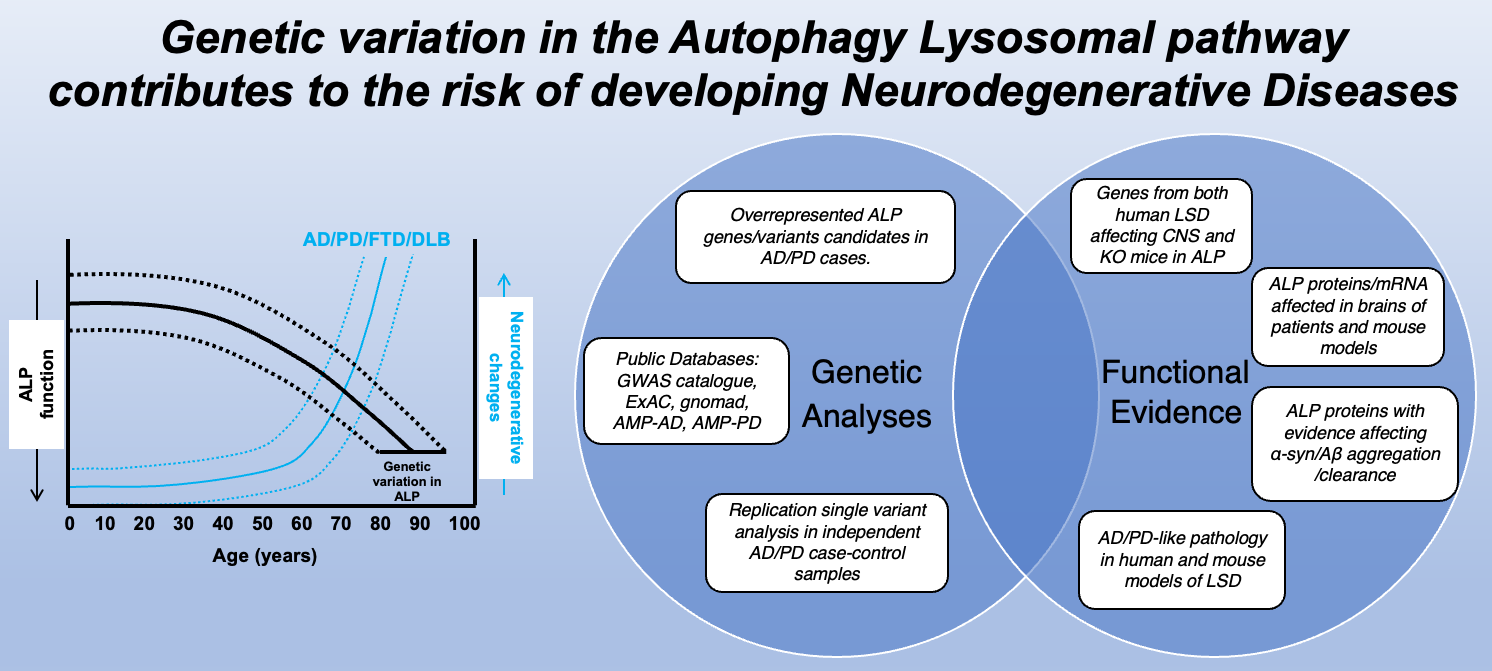We have successfully identified multiple novel genetic associations between AD and common and rare variants in endolysosomal genes (PLD3, RAB10, GRN12, TMEM106B, CPAMD8, MS4A4A). Recently, we performed a systematic, comprehensive evaluation of the contribution of coding variants in each endolysosomal gene to the risk of developing late-onset AD. We found that heterozygous loss-of-function (LoF) variants in several lysosomal enzyme genes are significantly enriched in AD patients. The largest and latest meta-analysis of PD GWAS found that common variants in several lysosomal genes are associated with PD risk. However, there is currently no in vitro or in vivo validation of most of those genetic associations. We performed intrastriatal inoculation of α-Syn PFFs in hemizygous and knockout (KO) GALC, ASAH1, and NAGLU mice, as well as in wild-type littermates. These studies aim to determine the role of these lysosomal enzymes on α-Synuclein (α-Syn) uptake, trafficking, aggregation, and clearance.

